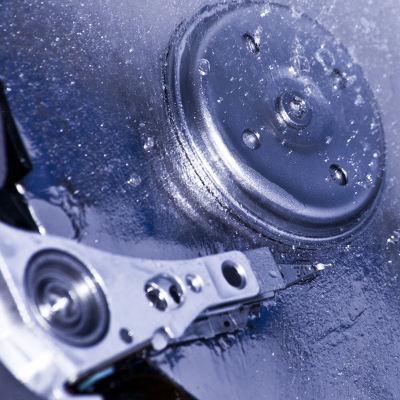Technology can be fragile; what’s the best way to preserve your important files for years to come? Here are some best practices when it comes to long-term data storage.
Let’s say that you’ve got a hard drive full of pictures that you want to hold on to, but you need space on your primary computer. Commonly people transfer the files to an external hard drive or leave them on the hard drive when they get a new computer.
A data storage system like this creates a closet full of beige computers. It’s an inconvenient and cluttered way to store data for the long term, and possibly bad for the data.
Cold Storage Issues
Storing powered-down hard drives in a climate-controlled environment is called “cold storage.” When storing hard disc drives, research has shown that data degradation isn’t an issue, so long as the drive is really stored in a climate-controlled environment. But here are a few things to consider:
Power It On Every Few Years
While your drive’s data is unlikely to degrade, the oil around the ball bearings of a hard disc drive that’s stored for several years may dry out, causing it to crash when powered up. Power hard drives on every few years so that the ball bearings will remain lubed up enough to prevent this problem.
Make Sure It’s Truly Climate Controlled
While data degradation isn’t a problem in a climate-controlled environment, it is known to happen in environments that are subject to extreme temperatures and high levels of humidity. If a location has its AC or heat turned off during certain portions of the year, find a more consistent location.
Make Copies
Keeping data in only one location could be a disaster in the event of fire, flood, or even an overzealous person throwing out your old, crusty-looking equipment. It’s a good idea to have your data backed up on a second drive at a second location.
Better Yet, Consider the Cloud
Forget about keeping a closet full of old hard drives, and transfer your old but important files to the cloud. Ultimately, cloud storage is the best data backup solution because:
- • It makes the files easily accessible.
- • It’s secure.
- • It’s affordable.
- • It frees up clutter caused by old equipment.
- • It’s a technology that changes with the times. For example, have you tried accessing your floppy disks lately?
To learn more about how the cloud can revolutionize the way you manage your data, give Quikteks a call at (973) 882-4644.

